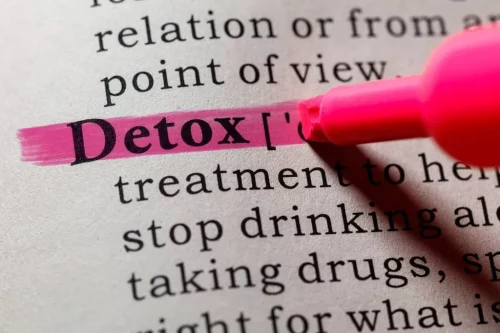How to Rebuild Your Life: Strategies for Long-Term Recovery

Ensuring that self-care is a core part of your rehab strategy can enhance your overall wellbeing and reinforce your healing efforts. In the early stages of recovery, it’s vital to recognize and celebrate progress, no matter how small. Each step forward, each hurdle overcome, is a testament to your strength and determination. Celebrating these victories can boost self-esteem, reinforce positive behaviors, and provide motivation to continue down the path to recovery. In the early stages of substance abuse recovery, the first important step is detoxification or cleansing.
Breaking the Shame Cycle by Viewing Relapse as an Opportunity for Growth
Sometimes, our recovery journey requires more frequent support group meetings and additional self-care practices. You don’t have to carry around shame – instead, taking proactive measures can help you regain control and continue your journey toward long-term recovery. At Little Creek Recovery, we understand that every individual’s journey is unique. We recognize that the past, while a significant part of your story, does not dictate your potential or your future. The present moment, challenging as it may be, is the beginning of a transformative process. This perspective shift – viewing your current situation as a starting point rather than a fixed state – is crucial in fostering hope and resilience in recovery.
Community Volunteer Opportunities
- They cover a range of treatment options, making the journey to healing more accessible.
- Finally, there are medicines that help to counteract the cravings with which many addicted people are afflicted.
- Visualizing a positive future, whether it’s rebuilding relationships, achieving career aspirations, or simply living a healthier life, provides a sense of purpose and direction.
- We also work with local temp agencies, contractors and other employers.
- Self-care must be prioritized, especially in the early stages of recovery.
- Find space in your life each day to incorporate these tips that you choose to carry with you.
Redemption House is a place for people in recovery to go when they need a place to restart their recovery. The Recovery Mansion was opened December 2017 and is home to 21 men including two house managers. Our Vision is to provide a personal transformation from engaging in the core values of life. One of the many ways our group of guys give back is by helping nonprofit organizations like Habitat for Humanity, where we volunteer our time to help build housing for those in need.
- They inspire individuals to envision a better future and work towards it despite the challenges they face.
- Adaptive strategies involve adjusting your recovery plan based on the lessons learned from setbacks.
- Our Mission is to provide a positive, safe, and accountable environment for women and men to overcome substance use disorder and learn to live a productive and independent life.
- Each day in recovery is filled with decisions that shape your path forward.
- Use the experience to reevaluate your recovery plan and make necessary adjustments to prevent future relapses.
- Fear can exist in your emotional landscape without becoming the sole focus of the experience, and when trying something unfamiliar, it’s often necessary that it does.
A New Beginning: Recovery Set

Visualizing a positive future, whether it’s rebuilding relationships, achieving career aspirations, or simply living a healthier life, provides a sense of purpose and direction. At Little Creek Recovery, we encourage individuals to set personal goals and work towards them, reinforcing the belief that positive change is possible. Emotional resilience involves developing healthy coping mechanisms to deal with stress, anxiety, and other emotional triggers that might have previously led to substance use. Techniques such as mindfulness, meditation, and cognitive-behavioral therapy (CBT) are integral parts of the recovery programs at Little Creek Recovery. These practices help individuals build emotional resilience, enabling them to manage their emotions effectively and reduce the risk of relapse.
- These experts care about your mental health as much as about your physical health, helping you deal with all these feelings.
- Having a stable job, having stable financial situation and helping us get back on track and building for future really helps.
- Personal growth is a continuous process that extends beyond the initial stages of recovery.
Recovery Supports

Current residents are welcoming to newcomers, committed to sobriety, and supportive of on another. The house culture holds resident accountable for unhealthy behaviors, and requires a high degree of adherence to house rules, and maintaining a healthy living environment. In addition to an investment in other resident’s recovery, each resident is expected to be a good neighbor New Beginning Recovery Review and engaged citizen through volunteerism in the community. Engaging in service work brings a sense of purpose, personal growth, and builds relationships.

Peer support groups, family therapy, and community activities foster connections that offer emotional support and practical advice. At Little Creek Recovery, we prioritize creating a nurturing and inclusive community where individuals feel understood and supported. Viewing relapse as an opportunity for growth rather than failure increases your chances of long-term recovery. By reaching out to your therapist and support group for guidance, together, you identify any triggers that led to your relapse and develop strategies to manage stress more effectively.
Redemption House Foundation
- We are dedicated to helping individuals in early recovery rebuild their lives.
- Through the process of recovery, we have found that no feeling is surpassed more than that of being a part of something greater than ourselves.
- If you or a loved one is struggling with addiction, remember that the journey to recovery begins with a single step.
- The road is not always straight but full of bends, twists, and turns that demand adaptability and resilience.
After completing the program, transitioning to an outpatient program can provide continued support while reintegrating into daily life. Patience is often overlooked but is incredibly vital during the early stages of recovery. Understanding that healing is not a race, but a personal journey that unfolds at its own pace, can alleviate stress and foster a healthier rehab experience. Patience with oneself, the process, and the inevitable ups and downs can be a significant pillar of strength in your recovery journey.

It’s about recognizing that setbacks are part of the journey and that each challenge is an opportunity to grow stronger. Not every mess will become magic, but every difficult moment will have something to teach you- something you’ll be able to carry into your next canvas to create magic. You don’t have to sabotage a future life in recovery over a current crisis. Mistakes, messes, and setbacks don’t mean the end of a painting, and they won’t stop you from flourishing in life either.
